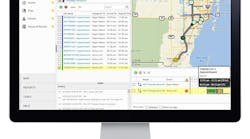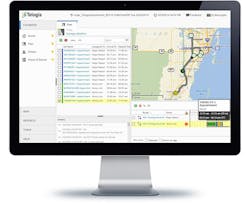All mobile service professionals work toward two main goals: making service more predictive and more proactive. The current business model relies heavily on break-fix occurrences, where a failure has occurred and the customer engagement is entirely reactive. By that time, the customer experience has started out negatively.
The not-too-distant future will bring us plumbing, HVAC and other building components/appliances that talk directly to service providers who can address mechanical issues before they grow into bigger failures (much like heavy equipment and vehicle fleet managers do today).
That level of proactivity is near as everything becomes more connected. In the meantime, service providers need to focus on shortening the service cycle and providing the greatest possible customer satisfaction — and mobile technologies help achieve that.
Almost all field service techs have cell phones, and 80 percent to 90 percent of them use smartphones. This puts convenient Internet access and a powerful computing device in the field. Smartphones equipped with advanced mobile/location intelligence apps help workers in the field be more efficient and shorten that window from event/customer request to resolution.
This makes customers happier and lowers the total cost of service (more work done each day). In this article, we’ll cover a few of the ways this mobile technology is helping improve customer service satisfaction and costs.
Sharing info, filing resources
Smartphones are for more than Facebook and Instagram — they enable real-time research and information sharing with coworkers and back-office personnel. This could be as simple as a web search or communicating through the text messaging capabilities of the phone, or as advanced as the incorporation of a work order management app that provides access to important documents. This can include the service agreement, customer profiles, instructional material, how-to videos or graphics, parts catalogs — anything that will help the field tech do their job better.
It essentially places the entire intelligence of the organization out on that service call — making the answer to almost any question a call, IM or document search away.
Connecting to mobile workers
Knowing the location and status of other mobile workers (and their vehicles) in the field can significantly improve customer service. Mobile fleet management apps can relay information on what parts and tools are on a vehicle, and the skillset of the driver. In the past, if a field tech was missing a part or a tool, they would travel back to their shop or to the nearest supply store.
Now — with a connected workforce — that field tech can pull up the real-time location and activity of colleagues in the area, locate the needed part or tool on one of their trucks, and get back to work sooner. If the job has presented an unusually difficult challenge, and requires a particular set of skills, that technician can check to see if someone with that skill is in the area to help complete the work in a timely manner.
Navigate, route better
Today’s professional navigation and routing applications take into account real-time feeds of traffic and weather information. This can provide benefits as simple as avoiding major congestion or accidents and routing to the next job in the fastest way possible, or it can help the technician reorder their day based on the weather.
As an example, they can plan their day so that all indoor jobs are planned and routed in the morning while it’s raining, and all outdoor jobs are planned and routed in the afternoon when it’s dry.
Dynamic job planning, delivery
We live in an ever-changing, decentralized work environment. Work order management applications can deliver new plans and jobs directly to the field service tech without requiring them to return to the office. The jobs can be prioritized and routed based on direction from the home office and delivered directly to the app. And not all workers/vehicles return to the home office at the end of each day — this technology allows for a full plan to be disseminated without requiring that extra time and travel — allowing work to get done faster with less wear and tear on vehicles.
Worker progress
Much of customer service satisfaction is based on expediency. No one likes hearing that help will arrive in a window between noon and 5:00 P.M. Location-based fleet management technology can notify the home office when a technician has left one job and is on their way to the next, which then allows them to notify the customer that a technician is on their way and their ETA.
Similarly, work order management technology allows those technicians to update their progress throughout the day, and provides insight into how they are performing to the plan for the day. This empowers the back office with information to keep customers up to date for when they can expect service.
The future
These are just a few ways that current mobile and location-based technologies help shorten the service window and help businesses provide better service to their customers. This technology is evolving – quickly – and service-oriented companies should take the time to investigate how these technologies will help their business now, and how they will revolutionize customer service in the years to come.
Kelly Frey has more than 20 years of experience as a senior executive and entrepreneur focused on supply chain optimization and fleet compliance solutions. Kelly co-founded BigRoad, the software and transportation app for fleet tracking and electronic HOS logging. He was also responsible for directing the sales and business development for Turnpike Global Technologies as executive vice president of Sales. He worked previously as vice president strategic marketing and vice president sales for Descartes Systems Group, a large provider of logistics software. He has a passion for changing the game with technology that improves mobile workforce safety, information empowerment and productivity. He earned his MBA from the University of Manitoba and his undergraduate degree from Wilfrid Laurier University.



